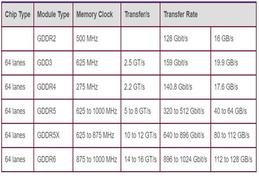CUDA vs. OpenCL: A Detailed Comparison
Advertisement
This article dives into the comparison between CUDA and OpenCL, outlining their key differences and helping you understand which might be the better choice for your parallel computing needs.
CUDA
- CUDA (Compute Unified Device Architecture) is a parallel computing platform and programming model developed by NVIDIA.
- It empowers engineers to leverage NVIDIA GPUs (Graphics Processing Units) for general-purpose processing, a technique known as GPGPU (General-Purpose computing on Graphics Processing Units).
- The CUDA platform acts as a layer that grants direct access to the instruction set and computing elements of the GPU, enabling efficient kernel execution.
- CUDA seamlessly integrates with programming languages like C, C++, and Fortran.
- It boasts broad operating system support, including Windows (XP and later), macOS, and Linux.
OpenCL
- OpenCL (Open Computing Language) is an open standard developed by the Khronos Group and written in C/C++.
- It provides a robust framework for writing programs that can execute across a variety of heterogeneous platforms. This includes CPUs, GPUs, DSPs (Digital Signal Processors), FPGAs (Field-Programmable Gate Arrays), hardware accelerators, and various other processor types.
- OpenCL offers a standardized interface for parallel computing, supporting both task-based and data-based parallelism.
- It features widespread operating system compatibility, including Android, FreeBSD, Windows, Linux, and macOS.
CUDA vs. OpenCL: Feature Comparison
The following table highlights the key distinctions between CUDA and OpenCL:
| Features | CUDA | OpenCL |
|---|---|---|
| Compilation options | Offline only | Online and Offline |
| Math precision | Undefined | Very well defined |
| Math library | Proprietary | Standard defined |
| Native support | No native thread support available | Task parallel compute model with ability to enqueue native threads |
| Extension mechanism | Proprietary defined mechanism | Industry-wide defined mechanism |
| Vendor support | NVIDIA only | Industry-wide support (AMD, Apple, etc.) |
| C language support | Yes | Yes |
| Function use | Compiler to build kernels | Build kernels at runtime |
| Buffer offset | Allowed | Not allowed |
| Abstraction of memory/core hierarchy | Blocks/threads, shared memory | Work group/item explicit data mapping and movement |
| Memory Copy | CudaMemcpy function | bufferWrite function |
| Event Model | Stream pipe | Event driven, pipeline |
Advertisement
 RF
RF
